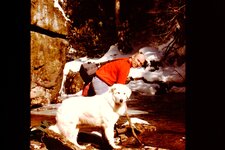rodoconnor
Bronze Member
- Mar 4, 2012
- 1,419
- 1,638
- Primary Interest:
- All Treasure Hunting
A dredger has agreed to pay a fine of $3600 for violating the Clean Water Act. According to the EPA Robert Rice broke the "law" {rule} , by discharging pollutants into the Clearwater River on July 22 2015. Not much text,but see the Idaho Staesman
Upvote
0





